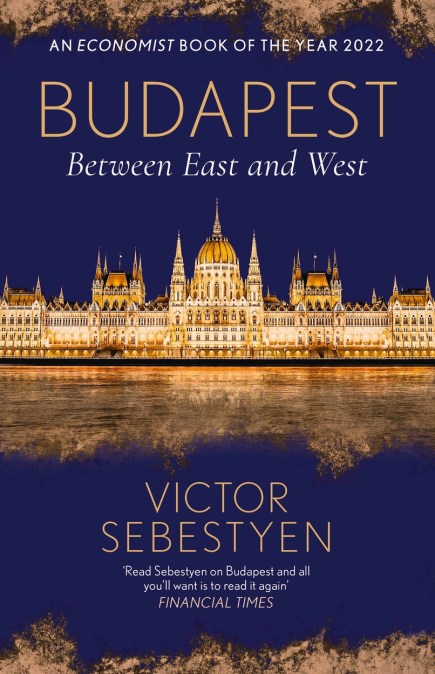Budapest has always been an important place. Almost at the centre of Europe, it is at the crossroads of geographical regions and of civilizations, at the intersection of ancient trade routes. Mountains that gradually slope into gentle hills converge on a great river, the Danube, and the regions of Buda and Pest sprang up on either side.
Throughout history the centre of gravity in Budapest and among Hungarians has shifted between this division of East and West – culturally, politically, emotionally. Invaders have come and gone, empires have conquered, occupied for centuries or decades, and left a few footprints behind: the remains of a Roman bath house complete with wonderfully preserved mosaics stand next to a Soviet-style ‘five-year-plan’ apartment block. The city bears the scars of the rise and fall of multiple empires, two world wars, fascism, Nazi German occupation, Soviet Communism. It has been home to some of the world’s greatest writers, artists and musicians. Hungary is a place of extremes, a small country that has often in history punched well above its weight. At many moments, events that began in Budapest have proved to be of world significance. This is the story of that tumultuous, often divided, but always fascinating city.
Throughout history the centre of gravity in Budapest and among Hungarians has shifted between this division of East and West – culturally, politically, emotionally. Invaders have come and gone, empires have conquered, occupied for centuries or decades, and left a few footprints behind: the remains of a Roman bath house complete with wonderfully preserved mosaics stand next to a Soviet-style ‘five-year-plan’ apartment block. The city bears the scars of the rise and fall of multiple empires, two world wars, fascism, Nazi German occupation, Soviet Communism. It has been home to some of the world’s greatest writers, artists and musicians. Hungary is a place of extremes, a small country that has often in history punched well above its weight. At many moments, events that began in Budapest have proved to be of world significance. This is the story of that tumultuous, often divided, but always fascinating city.
Newsletter Signup
By clicking ‘Sign Up,’ I acknowledge that I have read and agree to Hachette Book Group’s Privacy Policy and Terms of Use
Reviews
Victor Sebestyen's Budapest is a compelling portrait of one of the most important cities in Europe. Full of sharp insights, elegant writing and vivid characters, it is a magisterial work spanning 2,000 years from the Romans to the present day.
The most accessible and authoritative history of the city in a generation.
Not only a rich portrait of a city but also a masterful survey of central European history
This book is a delight. Elegant writing, urbane knowledge, scholarly depth, and a beautifully-sketched cast of warlords, writers and empresses, communists and kings. Not just a superb portrait of Budapest but a history of 2,000 years of Central Europe.
Forever caught between East and West, the capital of Hungary encapsulates the drama of central Europe in its wonders and horrors. The author, who left the city as a child after the uprising against communist rule in 1956, excels in describing Budapest's Habsburg heyday, the historical role of its Jewish population and the hubris and humiliations that have helped shape the city
Sebestyen's history of Budapest is full of fascinating facts ... The narrative swings back and forth between the broad sweep of Hungary's past and the almost tangible sense of the city: its streets, its people and its cafés - where the revolution of 1848 began and the words of the national anthem were written. The book ends with 1989, the fall of communism and the emergence of a young firebrand named Viktor Orbán. For anyone seeking background on Hungary's recent history, this is an excellent place to start.
Incisive... Sebestyen writes of his home city with deep knowledge and unabashed affection. A journalist-turned-historian, he has a fine eye for detail... Read Sebestyen on Budapest and all you'll want is to read it again
The task Victor Sebestyen sets himself is to explain both the 'boundless blindness' (in the words of Crown Prince Rudolf) and the 'extraordinary courage' (in Sebestyen's own) that have led Hungary to make the choices she has. The result is highly readable ... [Sebestyen] is excellent on the interwar regent Miklós Horthy. In fact he is excellent on 20th-century Hungary generally. It is a complex subject, but Sebestyen has written about it before, and his hand is very sure.
[Budapest is] magnificent, a really fine history. I was completely swept up in it. It's full of fascinating insights from an author with this city in his blood. Colourful detail and anecdote make it an exciting and often very entertaining read. Victor Sebestyen brings the key heroes and villains in Budapest's history to life. It's vivid, engaging and page-turning.





